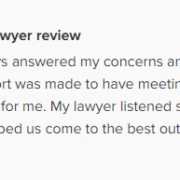Are Florida Divorce Courts Anti-Dad?
Over the past few years, there has been a movement to overhaul the alimony and child custody laws of Florida and other states. This is because husbands and fathers have felt like they are under siege in the family law court system. They have a glimmer of hope that, if only the laws were changed, then maybe they could get the respect and dignity that they deserve when entering a courtroom.

So this bring up a fundamental question: Are Florida’s family law courts anti-father?
As an attorney, you may be surprised to know that I believe divorce courts are anti-father. But I also believe they are anti-mother. In fact, I think the entire court system is anti-children and anti-family.
Don’t get me wrong. We have incredible judges in Hillsborough, Pinellas, Pasco, Sarasota, and Manatee Counties, and around the state of Florida, who try to do the very best that they can. But they are stuck in an adversarial system that pits mother versus father, husband versus wife.
A trial attorney in the divorce courts attempts to ensure that his or her client “wins” by doing the opposition research (depositions, interrogatories, motion practice) to show that the opposing party is a loser. Most times, both parties and their children end up as the losers, while the only real winners are the attorneys.
But there is a win-win alternative. In Collaborative Practice (sometimes referred to as Collaborative Law, Collaborative Divorce, or the Collaborative Process), each party retains his or her own collaborative attorney. The collaborative attorneys can only help the parties reach an out-of-court agreement, and they are contractually barred from engaging in contested court proceedings.
This means that the two clients and two attorneys are working together as a team – not as opposing parties – to try to work out a dissolution arrangement that is best for their family.
The law is only one factor that the team may consider. The team may bring in a neutral financial expert or neutral facilitator or neutral child expert to also take into consideration unique financial factors, help build post-divorce communication techniques, and take into account the children’s psychological and developmental needs.
The only time you go to court in Collaborative Practice is after the clients have reached a full agreement, and when they are ready for the judge to dissolve their marriage and/or make their parenting plan official and binding.
Collaborative Practice offers a degree of privacy, dignity, and respect to fathers and mothers alike that simply does not happen in the court system.
If you have questions about Collaborative Practice in Florida, schedule a consultation with Family Diplomacy: A Collaborative Law Firm at (813) 443-0615 or CLICK HERE to fill out our contact form.
—
Adam B. Cordover is the Immediate Past President of Next Generation Divorce, one of the nation’s largest collaborative practice groups. Adam is also on the Executive Board of the Florida Academy of Collaborative Professionals and on the Research Committee of the International Academy of Collaborative Professionals.





Leave a Reply
Want to join the discussion?Feel free to contribute!